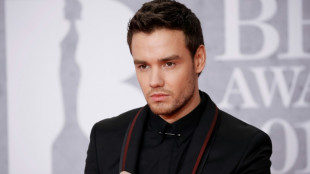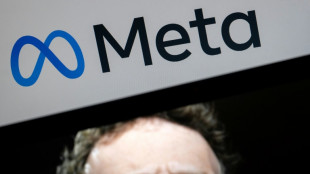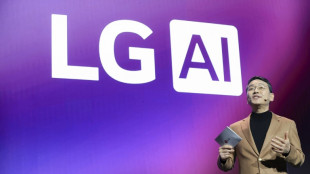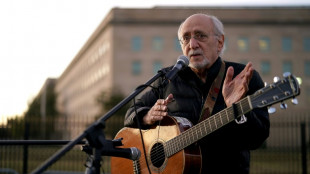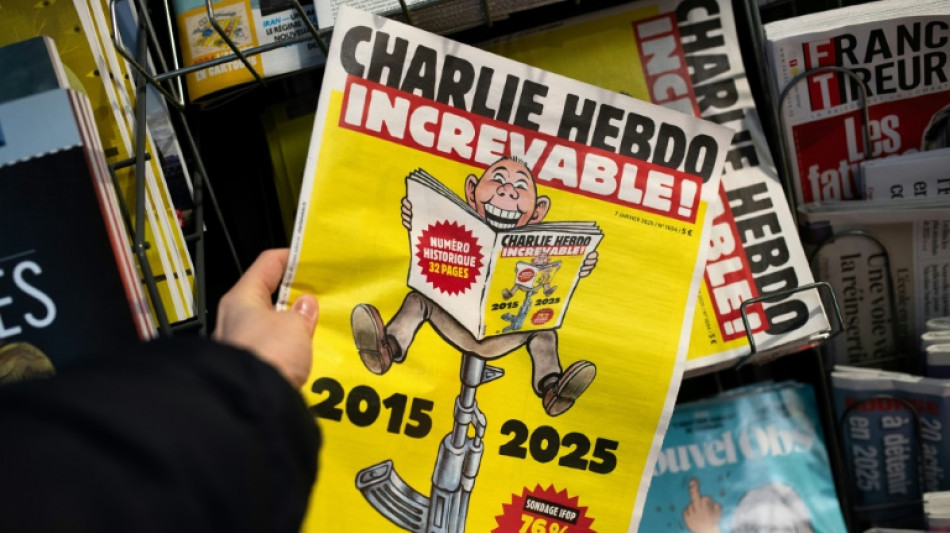

France to remember Charlie Hebdo attacks 10 years on
France is set to mark Tuesday 10 years since an Islamist attack on the Charlie Hebdo satirical newspaper that shocked the country and led to fierce debate about freedom of expression and religion.
President Emmanuel Macron and Paris Mayor Anne Hidalgo are set to lead commemorations at the site of the weekly's former offices, which were stormed by two masked Qaeda-linked gunmen with AK-47 assault rifles.
Macron and Hidalgo will also remember Ahmed Merabet, a Muslim police officer guarding the offices who was executed at point-blank range as he begged for his life in one of the most shocking images recorded of the tragedy.
Twelve people died in the attacks, including eight editorial staff, while a separate but linked hostage-taking at a Jewish supermarket in eastern Paris by a third gunman on January 9, 2015, claimed another four lives.
The bloodshed signalled the start of a dark period for France during which extremists inspired by Al-Qaeda and the Islamic State group repeatedly mounted attacks that set the country on edge and raised religious tensions.
Charlie Hebdo has published a special edition to mark the 10-year anniversary that features a front-page cartoon with the caption "Indestructible!"
In a typically provocative move, the militantly atheist publication also organised a God-themed cartoon contest that invited submissions of the "funniest and meanest" caricatures of religious figures.
"Satire has a virtue that has enabled us to get through these tragic years: optimism," said an editorial by its director Laurent Sourisseau, known as "Riss", who survived the 2015 massacre.
"If you want to laugh, it means you want to live."
The attack on the newspaper by two Paris-born brothers of Algerian descent was said to be revenge for its decision to publish caricatures lampooning the Prophet Mohammed, Islam's most revered figure.
- Cartoons -
The 10-year anniversary of the killings has lead to fresh introspection in France about the nature of press freedom and the ability of publications such as Charlie Hebdo to blaspheme and ridicule religious figures, particularly Islamic ones.
The killings fuelled an outpouring of sympathy in France expressed in a wave of "Je Suis Charlie" ("I Am Charlie") solidarity, with many protestors brandishing pencils and pens and vowing not to be intimidated by religious fanatics.
"Are we all still Charlie?" public broadcaster France 2 will ask in a special debate programme on Tuesday evening, with all major media organisations marking the event in some way.
Left-leaning daily Le Monde said the shock of the killings was comparable to that felt in the United States after the September 11, 2001, attacks on the country.
"How can we not deplore that the 'I am Charlie' has given way to a certain relativism with regards to freedom of expression and blasphemy, in particular among young generations?" it said.
Critics of Charlie Hebdo, foreign and domestic, are often puzzled by its crude humour and deliberately provocative cartoons that regularly incite controversy.
It has been accused of crossing the line into Islamophobia -- which it denies -- while its decision to repeatedly publish cartoons of Mohammed was seen by some as driving a wedge between the white French population and the country's large Muslim minority.
But a survey carried out by polling group Ifop and published in this week's Charlie Hebdo indicated widespread public support among French people for the freedom of expression to override concern for religious sensibilities.
A total of 76 percent of respondents believed freedom of expression and the freedom to caricature were fundamental rights, and 62 percent thought people had the right to mock religious beliefs.
(A.Renaud--LPdF)

